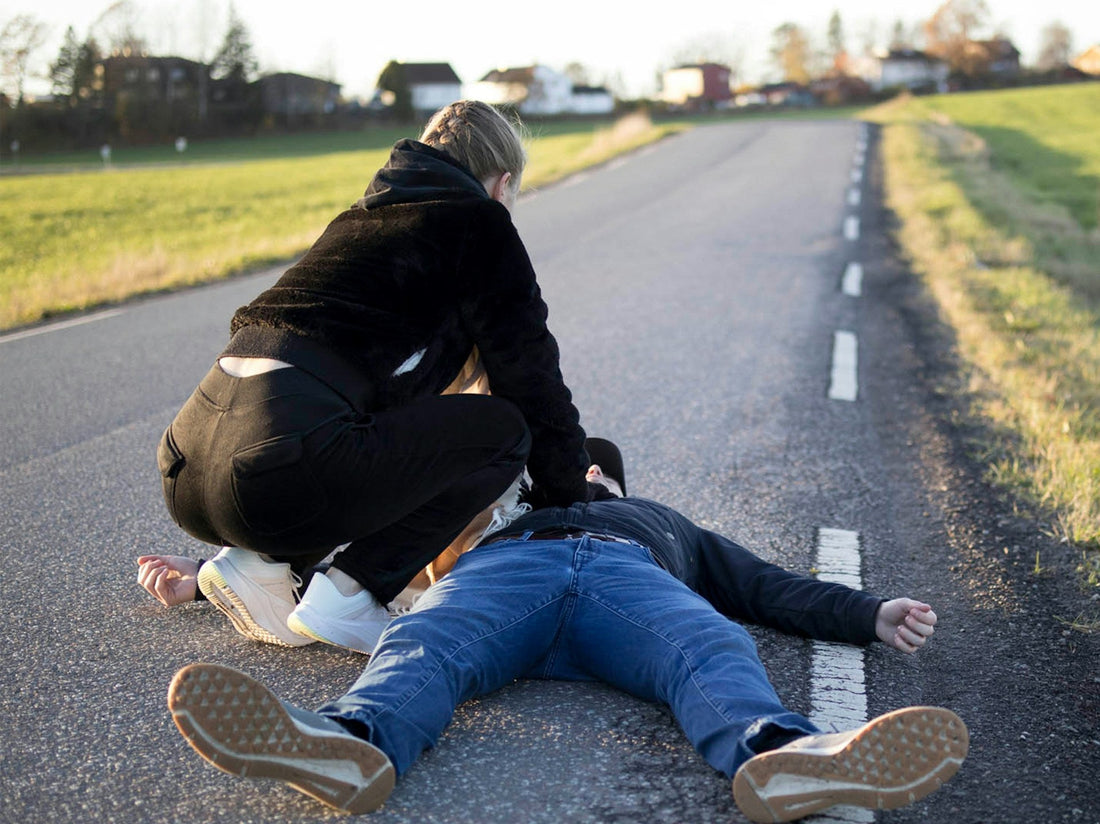
Does CPR Certification Legally Require You to Help in an Emergency?
Share
Picture this: you’re in the middle of your regular work commute when someone nearby collapses to the ground suddenly. You recently got your CPR certification, and immediately realize that this is an emergency situation — the person could possibly be having a heart attack. While a few people gather, none of them know CPR. You feel the urge to help, but are worried about being late to work by interrupting your commute.
Here comes the important question — do you need to help them? While you may feel a moral obligation to, any legal obligation is worth careful consideration. Are CPR-certified individuals in Ontario obligated to help in an emergency? Keep reading to find out.
Does CPR Certification Legally Require You to Help in an Emergency?
Generally, no — you are not legally required to help someone in an emergency if you are CPR-certified in Ontario. This is the case for all Canadian provinces and territories except Quebec.
However, there are some caveats to this…
If you have already begun to administer first-aid and CPR, you are legally required to continue helping the person until emergency responders arrive or until it is unsafe for you to continue.
Let’s dive more into when legal obligations take effect and what to be mindful of if you’re CPR-certified.
What CPR Certification Actually Means
First, let’s cover the basics. In order to know what your CPR certification could entail legally, we must first understand what being CPR-certified actually means.
One common misconception is that being CPR-certified makes you an emergency responder. While a CPR-certified individual may be the first to respond in an emergency situation, they aren’t trained medical professionals. As such, a CPR-certified individual does not have the same legal obligation to provide care as a medical professional.

So in that case, what is the role of someone who is CPR-certified?
CPR-certified individuals are trained to provide first-aid and respond to emergency situations. While they know some important techniques for providing life-saving care, their main duty (if they choose to act) is to keep the individual stabilized until emergency responders arrive.
Legal Duties to Act: Who Is Required to Help?
If CPR-certified individuals aren’t required to help, who is?
Specific professions—such as medical personnel, firefighters, and police officers—are mandated by law to assist when they encounter an emergency situation while performing their duties. However, this does not usually apply when they aren’t working at the time of the incident.
Bystanders are not obligated to help either, though some will choose to voluntarily. If an individual voluntarily decides to help in a medical emergency, they must not stop providing care until emergency services take over or it is unsafe to continue helping. They cannot walk away from the situation if they’ve already begun providing first-aid and CPR.
Good Samaritan Laws: Protecting Those Who Do Help
So, if you do help, are you putting yourself at risk of legal repercussions if something goes wrong?
Generally, no. Canada has put in place a Good Samaritan law which protects you from legal liability if you voluntarily assist in an emergency situation. This law is designed to encourage bystanders to help those in need by offering immunity from civil liability. You can not be held liable for helping as long as the assistance provided is reasonable and in good faith.
The Good Samaritan Act reinforces that individuals who offer help during emergencies, such as performing CPR or first-aid, cannot be sued for unintentional harm resulting from their actions.
Situations Where You Might Be Legally Required to Help
While the general rule in Ontario is that you are not legally obligated to assist someone in an emergency, there are several scenarios where you could find yourself with a legal duty to act. For example:
- Pre-existing Relationships: If you are in a position of responsibility or authority (ex. guardian, teacher, or employer), there may be an expectation for you to provide care.
- Contractual Obligations: Certain professions may carry specific legal duties through contracts that require assistance, such as lifeguards or first aiders employed at an event.
- Volunteer Roles: If you are volunteering for an organization, your commitment may entail an obligation to provide assistance during emergencies, especially if you are trained in medical response.
- Contracted Services: Some businesses may contract employees specifically as first responders or first aiders (ex. security guards), creating a legal obligation to act.
There’s No Downside to Red Cross Training
In summary, there is no downside to becoming first-aid and CPR certified in Ontario, because it won’t make you legally required to act in emergency situations. You can help voluntarily.
First-aid and CPR are invaluable skills to have. It’s a certification that can help your job prospects in a number of industries, while also giving you the confidence to act in emergency situations — whether you’re helping a complete stranger, co-worker, or loved one.
Performing CPR on someone in cardiac arrest can double the chance of survival. It is about more than being certified, it’s making a difference in your community and always being prepared for the unexpected.
With Pathways, anyone can become certified in first-aid and CPR within 6-16 hours of online and in-person training. Our certified Red Cross instructors are supportive and offer a range of affordable training options built to suit your needs. Training is available for both individuals and groups.
If you’re located in Kitchener-Waterloo, consider becoming Red Cross certified. There truly is no downside, and there’s no telling when you can make a difference.




